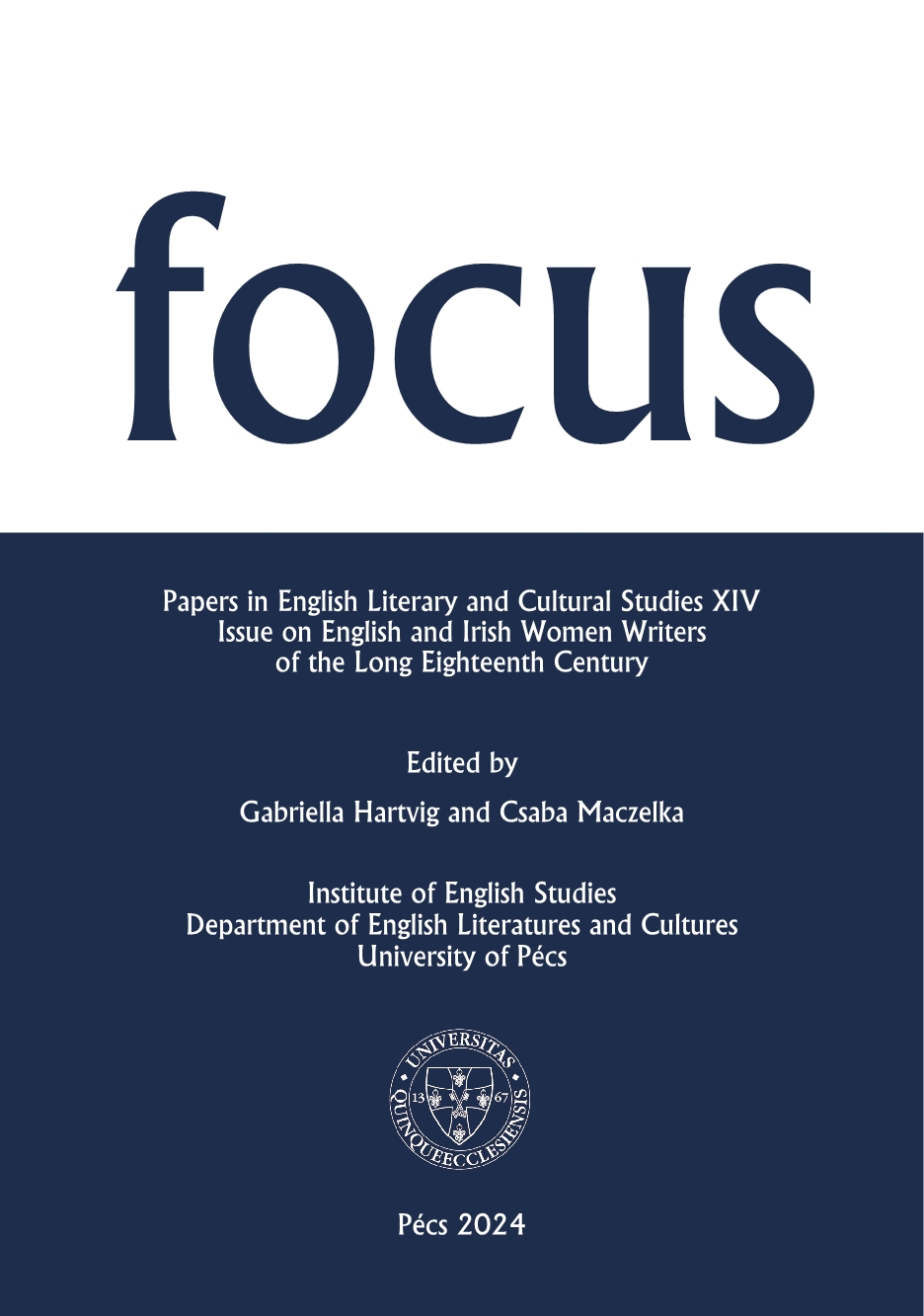“Must our wants / Find their supply in murder?”: Intersectional Social Conscience in Ann Yearsley’s “A Poem on the Inhumanity of the Slave Trade”
DOI:
https://doi.org/10.15170/Focus.14.2024.6Keywords:
Early Romanticism, Ann Yearsley, intersectionality, slave trade, fellow-feelingAbstract
For Ann Yearsley, issues like the abolition of the slave trade and the improvement of the working and living conditions of the English labouring classes were significant not only in her everyday life but also in her literary output. In the late eighteenth century, female writers had little chance to enter the public and literary discourse, but their voices were becoming gradually more audible, and the public literary and political platforms more accessible. Authors like Hannah More and Anna Laetitia Barbauld were at the forefront of the fight against slavery, but their backgrounds did not necessarily preordain their abolitionist positions—it was Yearsley whose social strata was the closest to the people whose liberation she advocated for. Rejecting the notion that the distance between Great Britain and its colonies where the slaves suffer most could be ignored by English authors and politicians due to geographical distance, Yearsley made a point that centuries later began to interest the likes of Judith Butler, who considered whether humans could ethically relate to human suffering at a distance. I would argue that Yearsley’s solidarity extended beyond the border of Britain and the continent of Europe precisely because she had experienced that proximity guarantees neither help nor compassion. Her general interest in politics, her radical, Protestant stance against exploitative practices, and her position as a woman intertwine and inform the rhetorical and poetical gestures present in her work “A Poem on the Inhumanity of the Slave Trade” (1788).
Downloads
Published
How to Cite
Issue
Section
License
Copyright (c) 2024 Boróka Andl-Beck

This work is licensed under a Creative Commons Attribution-NonCommercial-NoDerivatives 4.0 International License.
FOCUS: Papers in English Literary and Cultural Studies follows the principles laid down by Creative Commons, which provides guarantees for the Author’s copyright while also ensuring that intellectual properties are made available for the wider public in a digital form. All papers submitted to the journal apply the following licence conditions (indicated on the journal’s website as well as in individual publications):
“© This work is licensed under a Creative Commons Attribution-NonCommercial-NoDerivatives 4.0 International License.”
You are free to:
- Share, copy and redistribute the material included in the journal in any medium or format under the following terms:
- Attribution — You must give appropriate credit to the Author, and indicate the original place of publication [FOCUS: Papers in English Literary and Cultural Studies, Issue nr., page numbers.].
- NonCommercial — You may not use the material for commercial purposes.
- NoDerivatives — You are not allowed to remix, transform, or build upon the material.
- The above conditions must always be indicated if the journal material is distributed in any form.
- The above conditions must always be met, unless a written permission signed by the Author and the Editor-in-Chief states otherwise.

